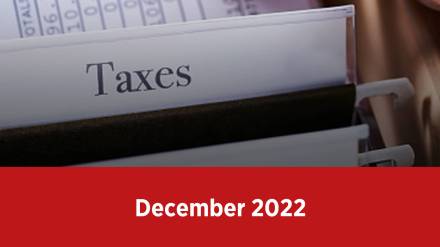Monthly requirements
If your church or organization reported withheld taxes of $50,000 or less during the most recent lookback period (for 2022, the lookback period is July 1, 2020, through June 30, 2021), then withheld payroll taxes are deposited monthly. Monthly deposits are due by the 15th day of the following month.
Note, however, that if withheld taxes are less than $2,500 at the end of any calendar quarter (March 31, June 30, September 30, or December 31), the church need not deposit the taxes. Instead, it can pay the total withheld taxes directly to the IRS with its quarterly Form 941. Withheld taxes include federal income taxes withheld from employee wages, the employee’s share of Social Security and Medicare taxes, and the employer’s share of Social Security and Medicare taxes.
Semiweekly requirements
If your church or organization reported withheld taxes of more than $50,000 during the most recent lookback period (for 2022, the lookback period is July 1, 2020, through June 30, 2021), then the withheld payroll taxes are deposited semiweekly.
This means that for paydays falling on Wednesday, Thursday, or Friday, the payroll taxes must be deposited on or by the following Wednesday. For all other paydays, the payroll taxes must be deposited on the Friday following the payday.
Note further that large employers having withheld taxes of $100,000 or more at the end of any day must deposit the taxes by the next banking day. The deposit days are based on the timing of the employer’s payroll. Withheld taxes include federal income taxes withheld from employee wages, the employee’s share of Social Security and Medicare taxes, and the employer’s share of Social Security and Medicare taxes.
December 15, 2022
- Complete all year-end transactions to be sure that they are reportable on your income tax return.
- A church must make quarterly estimated tax payments if it expects an unrelated business income tax (UBIT) liability for the year to be $500 or more. Use IRS Form 990-W to figure your estimated taxes.
- For 2022, quarterly estimated tax payments of one-fourth of the total tax liability are due by April 18 (April 19 if you live in Maine or Massachusetts), June 15, September 15, and December 15, 2022, for churches on a calendar-year basis. Deposit quarterly tax payments using Electronic Federal Tax Payment System (EFTPS).
December 31, 2022
- Churches must designate a portion of each minister’s compensation as a housing allowance by this date in order for ministers who own or rent their homes to receive the full benefit of a housing allowance exclusion for calendar year 2023. The designation should be adopted during a regular or special meeting of the church board and should be contained in the written minutes of the meeting.
- Churches should designate a parsonage allowance for any minister who lives in a parsonage and who is expected to pay some of the expenses of maintaining the parsonage (e.g., utilities, furnishings, repairs, improvements, yard care, insurance).
- Donors must deliver checks on or by this date to claim a charitable contribution deduction for 2022. Checks that are placed in the church offering during the first worship service in 2023 will not qualify for a charitable contribution deduction in 2022, even if the check is predated to 2022 or was written in 2022. However, checks that are written, mailed, and postmarked in 2022 will be deductible in 2022 even though they are not received by a church until 2023.
- An employee’s marital status on this date determines his or her filing status for the year.
- If you have a minister or lay worker who is treated as self-employed for federal income tax reporting purposes, but who you would like to reclassify as an employee, the ideal time to make the change is on January 1, 2023.



